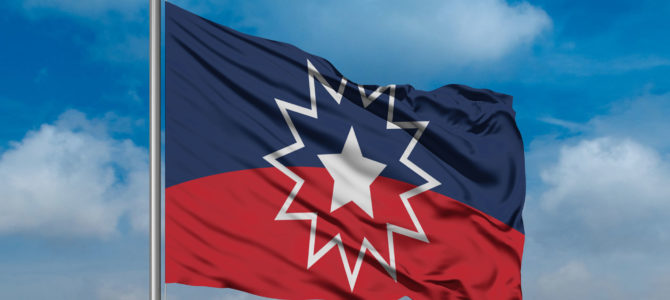President Joe Biden is expected to sign the bill making Juneteenth a federal holiday on Thursday but a new poll suggests that legislators’ overwhelming bid to nationalize the celebration of the June 19, 1865 announcement that all slaves in Texas were free may not be a prioritized interest for most Americans.
Gallup’s most recent poll about Juneteenth found that just 35 percent of Americans believe that Juneteenth should be made a federal holiday while approximately 25 percent of Americans say it shouldn’t. At least 40 percent of those surveyed said they weren’t sure whether it should be federally implemented or they were simply were unfamiliar with the holiday and its origins.
The poll also found that while 57 percent of Democrats believe Juneteenth should be federally instated, only 7 percent of Republicans were inclined to agree. Multiple GOP representatives were smeared after voting against the “Juneteenth National Independence Day Act” after criticizing it as an opportunity for the government to forward an agenda instead of celebrating the holiday’s true meaning.
“This name needlessly divides our nation on a matter that should instead bring us together by creating a separate Independence Day based on the color of one’s skin,” Rep. Chip Roy said after suggesting the act be renamed “Juneteenth National Emancipation [or Freedom or otherwise] Day.”
“We asked Democrats to work with us on the floor to change the name to one that properly recognizes the importance of the day without creating a separate ‘Independence Day,’ however, Democrats refused. As a country, we must stop dividing ourselves by race and unite in our common pursuit of the ideals set forth in our Declaration of Independence that all men are created equal,” Roy said.
“I fully support creating a day to celebrate the abolition of slavery, a dark portion of our nation’s history. However, naming this day ‘national independence day’ will create confusion and push Americans to pick one of those two days as their independence day based on their racial identity,” Rep. Thomas Massie agreed. “Why can’t we name this ’emancipation day’ and come together as Americans and celebrate that day together as Americans?”
Democrats have touted the bill as a way to memorialize “the end of slavery” but slavery was not formally abolished in the U.S. until the ratification of the 13th Amendment. That hasn’t stopped multiple states from joining Texas after 1980 to officially or ceremonially observe General Order No. 3 delivered by Union Army General Gordon Granger which effectively freed slaves in Texas just two months after Confederate General Robert E. Lee surrendered his troops and two years after Abraham Lincoln’s Emancipation Proclamation.
Neither the General Order nor the Emancipation Proclamation applied to states that had not seceded such as Biden’s home state of Delaware.








